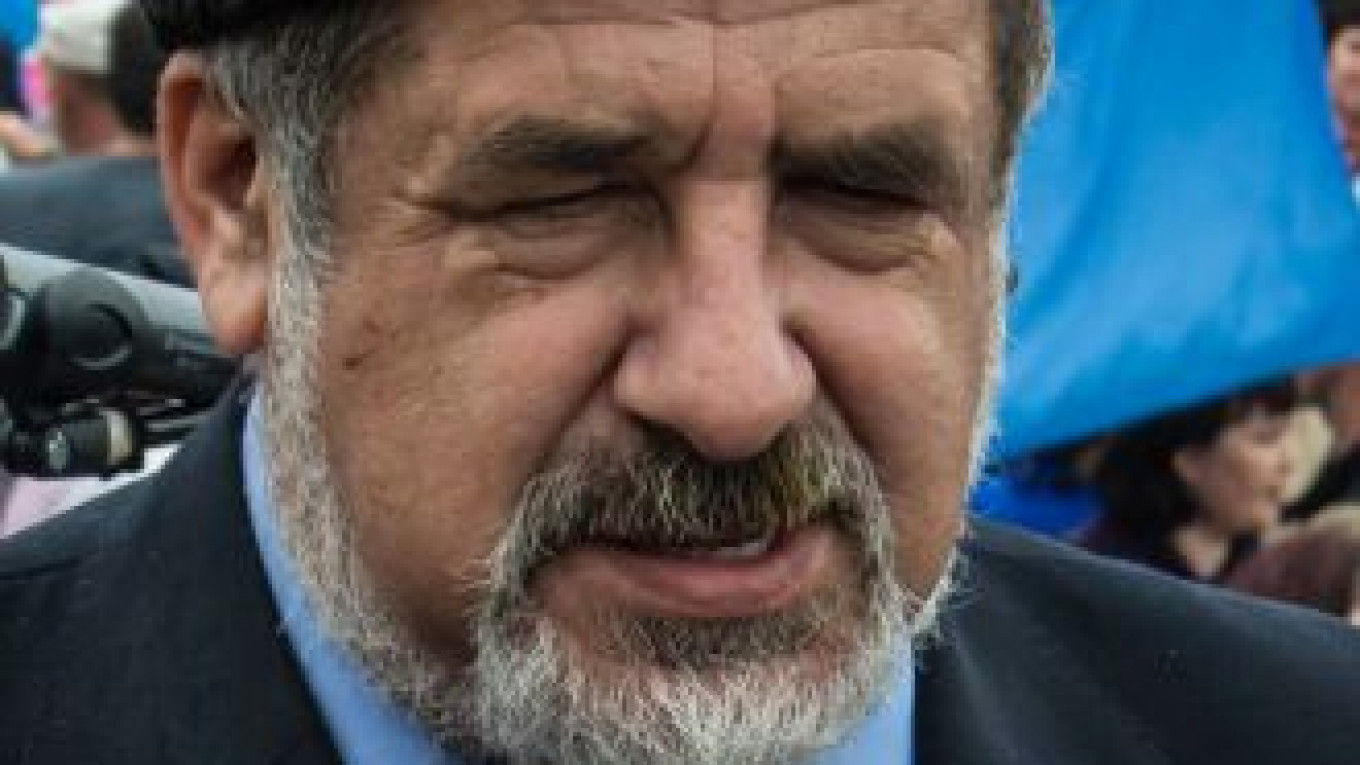The leader of Crimea's Tatar community was banned from returning home for a period of five years by the peninsula's prosecutor on Saturday due to "signs of extremism" allegedly present in a speech he gave a day earlier.
Prosecutor Natalia Poklonskaya confirmed the news on Twitter on Sunday, saying simply "[Refat] Chubarov has been banned from entering the Russian Federation for five years."
Chubarov, the current leader of the Crimean Tatar Mejlis, was informed of the ban upon attempting to return home from a business trip to the Kherson region of Ukraine, where the ethnic group's council held a meeting on Saturday with Mustafa Dzhemilev, the former head of the group.
The meeting had to be held outside of Crimea because Dzhemilev himself was previously barred from entering the territory, a move which prompted many human rights activists to warn of a policy of discrimination against the Tatars back in April.
In the aftermath of his own ban, Dzhemilev said he "did not exclude the possibility" that Chubarov would be the next to be ejected from the peninsula.
Chubarov is widely seen as more moderate than Dzhemilev and more willing to cooperate with Russia. Still, "signs of extremism" seen in his speech Saturday were deemed sufficient to impose the ban, according to Rossiskaya Gazeta.
Rossiiskaya Gazeta cited Crimea's Information and Mass Media Ministry as saying a discussion with the title, "Realizing the Right of the Crimean Tatars to Self-Determination on Their Historic Land — in Crimea" was to blame.
After being informed that he could not return home, Chubarov reportedly demanded that Poklonskaya issue the relevant decree in the language of the Crimean Tatars, something provided for by the peninsula's new Constitution.
Poklonskaya declined, local news outlet Crimea.Reality reported. Chubarov now has three days to appeal the ban, which he told the regional news website QNA he intends to do.
Human rights activists and observers alike have repeatedly warned of possible unrest among the Crimean Tatar community if they feel that they are being squeezed out or discriminated against.
Russian authorities appear to be acutely aware of such a possibility, having sent riot police to stand by while Chubarov was informed of his ban on Saturday, according to Crimea.Reality.
The news portal reported that six police buses and five police vans had accompanied Poklonskaya when she informed Chubarov of the decision to ban him at the border checkpoint.
The heavy security may have stemmed from disorder that erupted in early May when Dzhemilev's supporters met him on the border to protest his ban. At that time, there were clashes between police and Crimean Tatars, and Poklonskaya warned that the Crimean Tatar Council would be liquidated if such protests continued.
Most of the outrage over Chubarov's ban came from Ukraine's Foreign Ministry on Sunday, which compared the Tatar leader's exile to the policies of Josef Stalin during World War II, when he deported the entire Tatar community to Central Asia.
A statement issued by the Ukraine Foreign Ministry said the "absurd" decision to bar Chubarov from his homeland was a result of "the chauvinistic policies that Russia has been implementing against the Crimean Tatars, continuing the tradition of Stalin, from the beginning of the armed occupation of the peninsula to the annexation of Crimea."
President Vladimir Putin issued a decree to rehabilitate the ethnic group in April. At that time, Putin spoke out in favor of doing everything possible to avoid any discrimination against the Tatars.
A Message from The Moscow Times:
Dear readers,
We are facing unprecedented challenges. Russia's Prosecutor General's Office has designated The Moscow Times as an "undesirable" organization, criminalizing our work and putting our staff at risk of prosecution. This follows our earlier unjust labeling as a "foreign agent."
These actions are direct attempts to silence independent journalism in Russia. The authorities claim our work "discredits the decisions of the Russian leadership." We see things differently: we strive to provide accurate, unbiased reporting on Russia.
We, the journalists of The Moscow Times, refuse to be silenced. But to continue our work, we need your help.
Your support, no matter how small, makes a world of difference. If you can, please support us monthly starting from just $2. It's quick to set up, and every contribution makes a significant impact.
By supporting The Moscow Times, you're defending open, independent journalism in the face of repression. Thank you for standing with us.
Remind me later.






